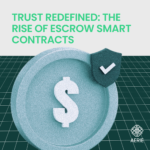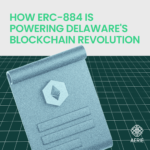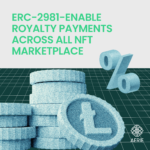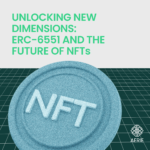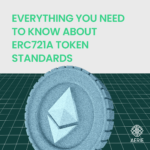Custodial vs Non-Custodial: What’s the Difference?

When dealing with cryptocurrencies and digital assets, wallets become your trusted partner in ensuring your funds are stored securely and managed effectively. There are two primary types: custodial vs non-custodial. Both options have their perks and things to think about. In this article, we’re gonna dig into the features of non-custodial wallets and why they’re often the go-to pick for folks who want more control and security over their digital assets.
What are custodial and non-custodial wallets?
Picture a fancy bank where you deposit your money, and they take care of everything for you. Custodial wallets work in a similar way. They’re provided by third-party folks like exchanges or online platforms, who handle your crypto keys and manage your assets. Basically, you trust them to guard your funds.
Now, non-custodial wallets are where the real action happens. They give you the power to be the boss of your digital assets. These wallets enable you to have exclusive ownership of your private keys, which are the cryptographic codes that grant access to your funds. Non-custodial wallets can be software or hardware-based, and they let you store and manage your digital goodies independently without relying on anyone else.
Why non-custodial wallets are all the rage:
Now, here’s the thing: custodial and non-custodial wallets each have their own strengths and weaknesses, and the choice ultimately boils down to personal preferences. But there are reasons why non-custodial wallets have captured the hearts of many crypto enthusiasts; here’s why:
Security
With a non-custodial wallet, you hold the keys to the kingdom. You, and only you, are in charge of your private keys. That means no lurking hackers or security breaches on custodial platforms can put your funds at risk. By taking the reins of your keys, you can greatly reduce the chances of unauthorized access or theft, giving you that oh-so-sweet peace of mind.
Financial Freedom
Who needs middlemen, right? Non-custodial wallets set you free from the clutches of intermediaries. When you rely on custodial wallets or platforms, you might have to play by their rules — dealing with withdrawal restrictions or enduring frustrating delays when accessing your assets. Non-custodial wallets break down these barriers. You’re free as a bird! Transact and manage your funds without any hassle.
Privacy
Privacy is like gold in the world of cryptocurrencies. Non-custodial wallets have got your back when it comes to keeping things hush-hush. They minimize the personal information you need to share, unlike custodial wallets that often demand personal details and even put you through the hoops of KYC (Know Your Customer) processes. With non-custodial wallets, you can maintain a higher level of anonymity, making them a top pick for those who cherish their privacy.
Before we go…
Today’s article may be short and sweet, but we’ve got the message across — when it comes to custodial vs. non-custodial wallets, it’s all about personal preference. In the future, we’ll dive deeper into this topic, exploring the nitty-gritty and technical aspects. So stay tuned for more insights!


